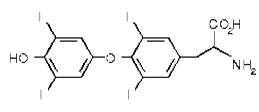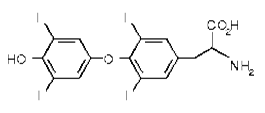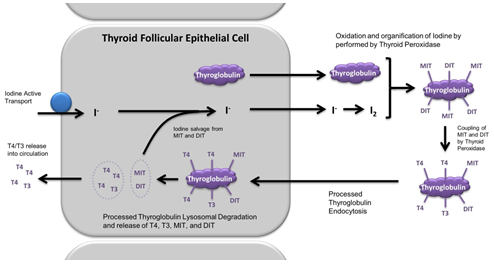Bonanza Offer FLAT 20% off & $20 sign up bonus Order Now
Discuss about the Report for Extracellular Messengers Modulate Metabolism.
This research paper is primarily concerned with the extra cellular molecule that alter metabolism rate in vertebrate. For the in-depth analysis of the paper, researcher has concentrated on the vertebrate, especially human. The paper begins with the overview of the Extra-cellular signaling, which alters the metabolism rate in the human body. The research section is going to identify the relevant researches on the Extra Cellular Signaling Molecule; with the help of the research, the pathways can be identified for potential therapeutics (3). The diagnosis section is going to explore about the negative impacts of this molecule and chemical perturbation or generic defect. With the help of the treatment procedures, the possible ways to mitigate the negative impacts can be explored though this. There may have several negative impact of this extracellular signaling molecule; effective treatment procedure can help in reducing the negative impact (12). The last section is going to elucidate about the undertaken policies or legislations pertain to the extra-cellular signaling molecule to reduce the adverse impact of this molecule.
Before going deep into the study, it is necessary to excavate the concept of Extra Cellular Signaling Molecules. These molecules are actually prompt actions like hormones, cytokines, growth factors, extracellular matrix components and neurotransmitters, which are helping in transmitting information from one cell to target cells.
For the analysis of the paper, hormone has been chosen as the extra cellular messenger. Hormone is an organic substance that is discharged from glands. It helps in regulating the physical activities as well as psychological activities and maintains Homeostasis. At the time of carrying out the function, hormone is evoking responses from a particular tissue or organ. Tissues response from the minor quantity of hormone; after secretion from glad, it flows through bloodstream and transmitted to the target (5). Thyroxine (T4) and Tri-iodothyronine (T3) are chosen as the hormones, which regulate the metabolic rate of the body. As per the molecular model, both T3 and T4 are composed of Iodine. As both these hormones are regulated by iodine; in that case, deficiency of iodine is the price cause behind the low secretion of T3 and T4. It enlarges the tissues of thyroid and cause the disease, Simple Goitre.
Structure and class of Tri-iodothyronine:

Figure 1: Tri-iodothyronine
Source: Portman M. (2008-pp.220)
The formula of Tri-iodothyronine is C15H12I3NO4. As per the temperature classification, Tri-iodothyronine will not explode below 2000c. It belongs to chemical class of Amine Hormones. Like any other hormone, it has significant impact on the growth and development of human body.
Structure and class of Thyroxine:

Figure 2: Thyroxine
Source: Wartofsky L. (2004-pp.116)
The above figure if showing the structure of Thyroxin (T4); the formula of Thyroxin is C15H11I4NO4. Alike Tri-iodothyronine, it also belongs to the chemical class of Amine Hormone. The ignition temperature of this hormone is above 1350C. With the help of Deiodinases, prohormone converted into active T3.
T4 and T3 are the major thyroid hormones in the human body that helps in regulating metabolic rate; this is produced by Thyroid Gland. Prime component of these two Thyroid Hormones are Iodine metabolism (2). Therefore, the major pathways of these two hormones begin with iodine metabolism. Along with that, intercellular metabolic biochemical pathways of thyroid hormones are affecting Protein, Lipid, Carbohydrate and Neucleotide.
Thyroid hormones and Lipid Metabolism:
Thyroid Hormones, especially these two hormones are influencing the major metabolic pathways. The prime action of these well-known thyroid hormones is to increase the Expenditure of basal Energy acquire acting on Lipid, Protein and Carbohydrate. Thyroid hormones are affecting three process of the lipid metabolism and the processes are:
Synthesis
Mobilization and
Degradation
As per the researcher, degradation is more influenced by thyroid hormones than the synthesis. Major impact on the Lipid Metabolism includes:
Increased use of Lipid Substrates
Enhanced rate of mobilization and synthesis of Triglycerides Stored in Adopose Tissue (15)
Rapid increase in the concentration of NEFA (Non-Esterified Fatty Acids) and
High Lipoprotein-Lipase Activities
Thyroid hormones and Carbohydrate:
Thyroid Hormone affects the Glucose Homeostasis with the help of its actions in various organs including the enhanced output of glucose, enhanced Futile Cycling of Glucose degradation within the muscle and liver. O the other hand, it decreases the glycogen stores in the skeletal muscle and livers. It alters non-oxidative and oxidative glucose metabolism, low level of output of active insulin from pancreas and enhanced clearance of renal insulin. T4 and T3 also affect the adipose and adipokines tissues (11).
Thyroid Hormone and Protein: From the Physiological context, it can be perceived that thyroid hormone not only stimulates synthesis but also responsible for protein degradation. On the other hand, if it is seen from the Supraphysiological context, it can be depicted that protein catabolism is predominant. For releasing the skeletal muscle amino acid, the plasma concentration of Glucoplastic amino acid can be increased. The parent molecule of Thyroid Hormone is l-T4. Metabolic Pathways of Thyroid Hormone are Phenolic-5’- (outer ring) and Tyrosyl-3’- (inner ring).

Figure 3: Biochemical Steps of Thyroid Hormone
Source: Woeber K. (2000-Pp.36)
The above figure of showing the Biochemical steps of Thyroid Hormone. The synthesis of Thyroid Hormone is entirely based on the Amino Acid Tyrosine. Primary synthetic organ is the thyroid gland, which produces almost twenty times more Thyroxine than Tri-iodothyronine. Biochemical pathways like Protein, Carbohydrate and Lipid are followed by Thyroid Hormone. The key enzyme for thyroid is Glycolytic Enzyme. Thyroid Hormone requires Iron, selenium, Iodine and Cortisol; these are the key cofactor for Thyroid hormone. In case of the Deiodinase Enzymes, Selenium, Copper and Zinc are the co factors, which help in converting the T4 into T3 (8). Large amount of Iodine is necessary for synthesis of thyroid hormones’ Physiological level.
Thyroid Hormone, especially T3 and T4 are the major hormones of human body, which helps in regulating metabolic rate. On the other hand, over secretion of these two hormones in human body can lead to several diseases like Simple Goitre. Several journals, books and articles have been written on the types of hormones and its negative impact on out body. Among the several other researches, Thyroid Research is a well known journal, which is available online. It is one o the authentic sources to collect knowledge regarding thyroid hormones, different types of thyroid hormones, its positive and negative impact on human body, thyroid diseases and its mitigating policies. Regular readership of this journal is researchers, healthcare service providers and clinicians across the world.
In accordance with Thyroid Hormone and Calcium Metabolism (13), it can be depicted that Thyroid Glad and aging has in-depth relation with each other. The complexity of disease has increased with the age. Entire endocrine system, especially the particular endocrine organ; including thyroid goes under numerous functional changes at age passes. The disorder of thyroid has increased with the ages. People with hyper and hypo thyroid face several psychological and morphological changes. On the other hand, Wartofsky (14) stated that previously the research on the thyroid disorder in the older person is different from the younger generation due to the subtle symptoms. Recent research is showing that if the disorder is not cured from the depth then it will become a major problem with ageing. According to the report of 2015, it can be depicted that Thyroid Hormone Transporters and its function has been discovered. Influx and efflux of the cellular of thyroid hormones are assisted through the transmembrane protein. Among these transporters, one of the most significant one is Monocarboxylate Transporter 8 (MCT8). It helps in transporting thyroid hormones and other derivatives.
Thyroid hormones like T3 and T4 is majorly responsible for regulating metabolic process throughout the body. Like any other process, the production of the thyroid hormones depend on the three key components and the three components are
Iodine is the key material for thyroid; the deficiencies of thyroid can be the cause of several problems in human body. Too much secretion of thyroid hormones can be the cause of hyperthyroidism and insufficient hormone production is the cause of Hypothyroidism. Both this effects of hormones can be the cause of discomfort in the human body. The problem is not only physiological but also psychological (10). Disruption in the synthesis of thyroid hormone can be the cause of various diseases. Hypothyroidism poses threat to the newborns and infants. Lack of secretion of thyroid hormone in the human body can be the cause of mental disorder especially in the infants and newborns. This mental retardation is known as the Cretinism. On the other hand, another problem that is seen in the infants is Dwarfism. Due to lack of iodine, children are unable to grow their fullest. Doctors should recommend the parent to go through regular checkup (4). In case of adults, Hypothyroidism can be the cause of the Pituitary disorder, lack of gland and defective thyroid. Along with that, Hypothyroidism can be the cause of
Due to overproduction of thyroid hormones, several diseases can be occurred:
Due to advancement of medical science, several effective treatment processes have been evolved for all types of Hyperthyroidism.
Anti-thyroid drug: In case Graves’ disease or Toxic Nodular Goiter, Anti-thyroid drug is one of the significant ways to reduce Graves’ Diseases. This drug helps in reducing the impact of Simple Goiter.
Radioactive Iodine Treatment: Radioactive Iodine Treatment is widely recommended is considered as one of the significant way of reducing the impact of Hyperthyroidism. Thyroid cells are the only cell of human body, which has ability to absorb iodine. Thyroid cell is very good in adsorbing iodine (6). Therefore, Radioactive Iodine Treatment takes advantage of this iodine adsorbing capability and introduces new treatment process of mitigating impact of Hyperthyroidism.
Surgical removal of gland: Surgical removal of Gland is one of the significant and permanent ways of curing the disease. In case of Hyperthyroidism, surgical process of removing thyroid gland has become one of the significant ways of reducing the effects of Hyperthyroidism.
Treatment procedures of Hypothyroidism:
Levothyroxine dosage is recommended for the patients of Hypothyroidism.
At steady state of the patients reassessments of the serum TSH is recommended; it should be followed after the starting or end of secretion of estrogen and androgen (7).
Proper absorption of levothyroxine is necessary. Multivitamin supplements and iron supplements are necessary for absorbing increased level of Lovothyroxine.
High fiber diet is recommended to the patients after taking medicines like Cholestyramine, Calcium Supplements and Aluminum Hydroxide.
Australian Institute of Health and Welfare 2015 has taken care of the Thyroid patients. Doctors and health care professionals should follow the guideline before prescribing medicines to the patients. TSH tests are recommended before prescribing any kind of medicines to the thyroid patients (1). Doctors are entitled to provide diet chart to the patients so that they can follow the diet chart. Health care Act 2008 is the policy that guides the Endocrinologist regarding the proper way of treating the patients of thyroid.
From the above analysis of the paper, it can be considered that Steroid Hormones are the classic example of group of signaling molecules, which includes Thyroid Hormone, retinoic Acid and Vitamin D3. Human beings have been chosen to gain better knowledge about the extra cellular signaling molecules (2). Thyroid Hormone is one of the significant hormones in the human body; it helps in regulating metabolism rate of human body. Overactive Thyroid Hormone has negative impact on the human body. With the help of several tests and tools, it can be detected. Various medicines have been created to mitigate the negative impact of Hyperactive Thyroid Hormone.
MyAssignmenthelp.co.uk is a name in assignment writing services that students trust. We offer our assignment writing services for a wide variety of assignment including essays, dissertations, case studies and more. Students can place their order with us anytime as we function 24x7, and get their copies at unbeatable prices. We guarantee that all of our solutions are plagiarism-free.
Upload your Assignment and improve Your Grade
Boost Grades